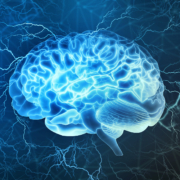What is cognitive fitness, and how it is assessed
In recent weeks, particularly in connection to the early stages of the 2024 Presidential election, there has been great reference to the concept of cognitive fitness and a call to assess fitness among older politicians.
But what is cognitive fitness, why does it matter, and how is it measured?
The concept of cognitive fitness is rapidly growing in significance among a wide range of occupations where error may result in devastating consequences. In general, cognitive fitness refers to a person’s cognitive capacities in relationship to the demands of a task or occupation. Generally, this refers to someone’s cognitive abilities apart from intelligence or general knowledge.
As Dr. Eugene Aidman has written, cognitive fitness also often relates to “the capacity to deploy neurocognitive resources underpinning a (specific) action.”
You can think of cognitive fitness like physical fitness and aptitude. When we consider a professional athlete’s physical attributes, for instance, we evaluate them in the context of a specific function. Take a wide receiver in professional football. He might be very fast and strong and might have a skillset that is well-suited for that position (flexibility and speed) but not well-suited to play the position of linebacker (size and strength). Thus, when one sets out to assess this person’s physical fitness, they would consider the physical characteristics necessary for optimal performance in that player’s position. (Similarly, if we were evaluating the physical attributes of a marathoner, we would assess aerobic efficiency over strength and size).
When one is assessing cognitive fitness, the focus is on essential cognitive features such as the capacities to be mentally flexible; to learn new information and retain it; to set priorities and resist impulsive actions or responses; to sustain attention despite fatigue, boredom or distraction; to tune out irrelevant information; to plan and manage large volumes of information; and to solve problems in the face of novel and unexpected circumstances.
When assessing these cognitive features, one must consider them in the context that an individual’s job demands.
Impact of age
Advancing age also is a factor that requires consideration.
Dr. William Perry, Executive Director and Past-President of the National Academy of Neuropsychology (NAN) and Professor of Psychiatry at the University of California, San Diego, is a national expert in assessing the cognitive fitness of senior physicians. Dr. Perry said that just as physical abilities decline over time, so do cognitive abilities.
In a 2015 article titled, “The Impact of Age on Cognition,” author Dr. Daniel Murman explained that there are two general categories of cognition that need to be assessed when evaluating cognitive abilities: crystallized and fluid abilities. Crystallized abilities are a cumulation of well-learned and over-practiced skills and acquired knowledge. Fluid abilities require a person’s innate ability to process and learn new information to attend to critical stimuli and to manipulate and transform information. Murman wrote that when one assesses fluid abilities, one is assessing a person’s ability to process new information quickly, and to demonstrate flexibility in addressing novel and unfamiliar situations. It has been shown that crystallized abilities improve until approximately age 60 followed by a plateau until age 80, and that there is a there is steady decline from there. Fluid abilities peak in the 20s and decline throughout one’s lifespan.
Dr. Perry noted that these age-related cognitive characteristics are associated with changes in the structure and function of neuronal networks.
“It should be no surprise that our bodies change with age; most people begin experiencing changes in eyesight and hearing as they age, older adults lose muscle mass over time and are more susceptible to fatigue” Dr. Perry said. “Our brains are not immune to these changes; it is a natural part of life. For older individuals who work in high-risk environments, where error is unforgiving, these cognitive abilities can, under certain circumstances, result in poor performance and in some cases very bad outcomes.”
As Dr. Perry explained it, age related decline in cognitive fitness has been identified among many professionals.
Take professional chess masters; their performance is contingent upon intellectual demands and cognitive abilities such as strategic thinking, memory sustained attention, and rapid decision making. But as they age, chess masters experience decreases in processing speed and stamina, and their response times decrease. What’s more, research suggests that performance peaks in grand masters’ in their early 30s. As they age, these chess pros demonstrate a reduction in mental sharpness in the context of a cognitively intense task (in this case, a chess match).
The same is true of people engaged in high-risk occupations such as airline pilots, surgeons, and more. In these cases, the result of the decline in specific cognitive abilities can be far more damaging. This phenomenon has a biological basis and has been repeatedly supported by research.
For example, in 2019 a French team headed by Mickael Causee tested pilots from three age groups and subjected them to cognitive decision-making tasks that ranged in cognitive demand from low to high. At the same time, researchers measured the functioning of the pilots’ prefrontal cortices (that’s the area of the brain responsible for complex decision-making). The researchers reported that older pilots performed worse than younger pilots on all tasks. They also determined that pilots’ poor performance was associated with a “plateau” of prefrontal cortex activity during the highest demand task, suggesting age-related functional brain differences.
Applying these findings to political leaders who must perform under high pressure with the ability to make important decisions quickly, it is likely that essential cognitive abilities that naturally decline over time may also result in observable performance decrements.
To be clear, some people may demonstrate minimal age-related changes. Furthermore, identifying someone’s cognitive strengths and weaknesses is different from determining that someone has a cognitive impairment. Put differently, just because someone has cognitive weaknesses does not mean that person is necessarily cognitively impaired.
Keeping tabs on cognitive decline
What does cognitive decline look like in everyday life? Dr. Perry said research suggests that as a person gets older, that person relies more heavily on past experiences and well-learned problem-solving strategies—a phenomenon that could potentially become problematic if the individual is faced with a novel situation where overlearned strategies are not resulting in success.
In these demanding circumstances, older individuals are less able to consider alternative pathways to problem solve. In practical terms, this means older adults apply the same strategies in the face of new and novel circumstances, essentially being resistant to considering alternative approaches. This can lead to increased frustration, overlooking critical pieces of important information, being more prone to stress and fatigue, and general decline in their ability to manage large amounts of information.
There are several different ways to assess cognitive fitness.
Some have suggested that using a cognitive screening tool such as the MoCA (Montreal Cognitive Assessment) is sufficient in “clearing” someone to be fit to perform optimally in their profession. Dr. Perry said that while the MOCA is a well-validated and sensitive tool to detect cognitive impairment and dementia, it is only a screening, and it offers a limited information when assessing the complex cognitive abilities required to optimally perform in high-demand, high-risk risk occupations.
This is one area where neuropsychologists have emerged as experts in providing an in-depth appreciation of a person’s cognitive strengths and weaknesses as applied to their occupational demands. These experts know precisely what to look for, and what to note when conducting a thorough cognitive fitness exam. In short, while it is useful to utilize a lifetime of skills and acquired experiences, older people are prone to normal age-related cognitive slippage. Neuropsychologists can play a key role in understanding a person’s cognitive fitness and how one can mitigate the effects of decline in functioning over time.
This article has been factchecked. For more about that process, click here.









